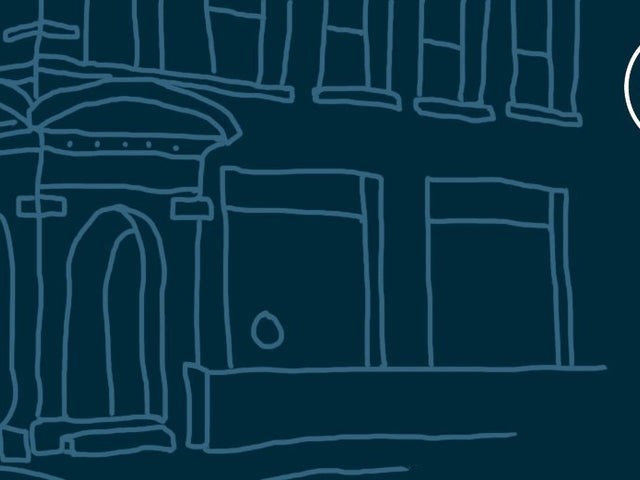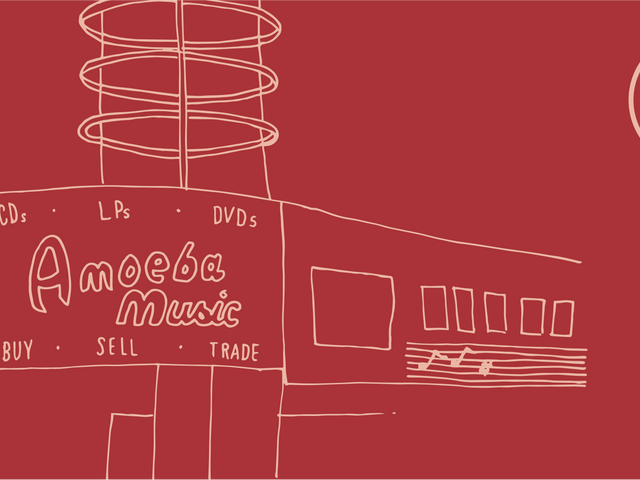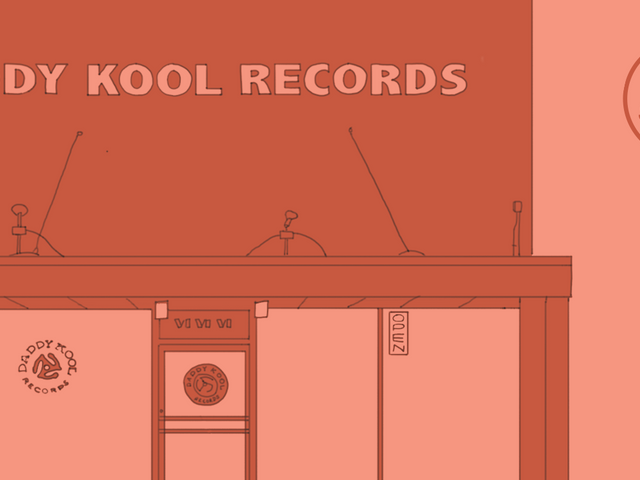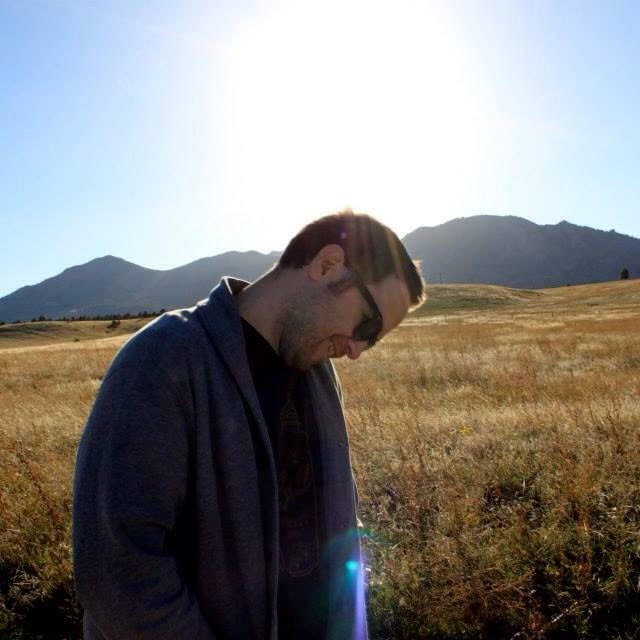Los 20 Mejores Álbumes de Folk de 2016
Nuestro columnista popular sobre lo mejor en guitarras y sentimientos este año
Dado que estamos acercándonos al final del año y este es un conteo de lo mejor que ha pasado por mis altavoces durante él, diré lo que he dicho durante todo el 2016: se pueden decir muchas cosas sobre este año, pero lo que creo que todos podemos coincidir es que ha sido un año realmente fuerte para la música, pero especialmente para el folk. A continuación se encuentran los 20 Mejores Álbumes de Folk (o algo que se le parezca) de 2016 y aunque están en algún tipo de orden, fuera de mi álbum #1, podrías convencerme de que cualquiera de los otros 20 sea el #2 dependiendo del día. Esperemos que 2017 nos proporcione tanta buena música como 2016.

20. Andy Shauf: The Party
Es fácil comprar la historia del álbum conceptual de Andy Shauf The Party porque hemos vivido cada una de estas situaciones en nuestra adolescencia y veinte años; todos hemos sido el chico que llega demasiado pronto a la fiesta, o el que intenta hacer un movimiento poco acertado sobre alguien con quien no deberíamos, o, si tenemos realmente suerte, el que tropieza con una posible conexión sin ninguna habilidad propia. ¿La otra razón por la que funciona? Shauf es un maestro del relato, anclando cada historia en la especie de romanticismo torpe que parece prosperar en las fiestas y acompañándolas con todo, desde exuberantes y vibrantes pop hasta guitarras delicadamente tocadas.

19. Michael Kiwanuka: Love & Hate
Aún me sorprende cada vez que escucho el segundo álbum de Michael Kiwanuka que espera más de cinco minutos antes de cantar. Él puede hacer lo que quiera, francamente, si va a tocar la guitarra con tanta fuerza y dar grandes pasos adelante como compositor como lo hace aquí. Hay mucho espacio en Love & Hate, Kiwanuka permite que las canciones giren, se construyan y rompan a su propio ritmo, nunca apresurándolas pero tampoco dejando que se alarguen demasiado. Este es un álbum lleno de dolor y de búsqueda de uno mismo en un mundo desgarrador, pero es increíble cómo suena genial mientras te hunde.

18. Angel Olsen: My Woman
Hay mucho que impresiona en My Woman, como la capacidad de Olsen para probar una variedad de estilos y enfoques sin un solo error o momento en que no funciona o no se siente sincero; pero lo que sigo volviendo es a la canción "Sister". Sobre el papel no debería funcionar, siendo que dura casi ocho minutos, pero lo hace, porque ella es una maestra en su oficio, una que hace que ocho minutos se sientan como una canción pop de duración estándar, una que ha dado un gran paso adelante como artista y que tal vez es mejor de lo que pensábamos/sabíamos que era (y todos pensábamos que era increíble). Es algo impresionante, esa canción, pero en realidad, todo My Woman lo es.

17. Aoife O’Donovan: In the Magic Hour
A veces el título de un álbum sirve como guía para el oyente sobre cuándo es el mejor momento para escucharlo. In the Magic Hour está destinado a esos momentos temprano en el día cuando sale el sol y más tarde cuando se pone, esos momentos cuando todo se tiñe de oro y es más hermoso, esos momentos cuando la luz afuera es la misma que en esas viejas fotografías que amas y que despiertan todos esos sentimientos. Las hermosas y melancólicas canciones de O’Donovan se desarrollan como esas viejas fotografías que tienes y tanto amas, aquellas que siempre parecen haber sido tomadas durante esas horas doradas, las que te hacen recordar y añorar tanto.

16. Whitney: Light Upon the Lake
A veces los discos son simplemente divertidos y buenos, y te gustan. A veces los discos cambian de algo que suena bañado por el sol y perfecto para el verano a sonar nebuloso y dorado, como una tarde de finales de otoño. A veces dejas de intentar clasificar o racionalizar por qué te gusta algo y simplemente lo disfrutas porque es divertido y bueno y agradable, y te gusta cada vez que suena, sin importar la situación. Este es uno de esos.

15. Julia Jacklin: Don’t Let The Kids Win
Hay una línea en la canción principal del álbum debut de Julia Jacklin que dice: "Siento que esto nunca va a cambiar: vamos a seguir envejeciendo, va a seguir sintiéndose extraño," que me golpea cada vez que la escucho. Es una línea perfecta y sincera, en la que estoy seguro que todos podemos identificarnos, y resume a la perfección de qué trata este impresionante álbum: crecer es torpe y incómodo para todos, y lo mejor es simplemente abrazarlo y asumirlo en lugar de pretender que eres demasiado cool para sentirlo.

14. Wilco: Schmilco
Podrías pasar por alto esto como "rock de papá" o como quieras llamarlo, pero eso sería tonto. Con 10 álbumes a su haber, Wilco sigue haciendo lo que les da la gana, con un estilo relativamente escaso, cauteloso, sincero y directo con los acordes menores después de toda la confusión de Star Wars, demostrando que todavía son capaces de escribir canciones de folk/Americana/o como quieras llamarlo, con guitarras y sentimientos, mejor que la mayoría de los jóvenes que lo hacen hoy en día.

13. Loamlands: Sweet High Rise
Hay algo sobre la voz de Kym Register que me atrapa cada vez en Sweet High Rise, usualmente alrededor de ese segundo verso de "Folk Hero." Su voz es cálida y acogedora y conmovedora, suena genuina en momentos de positividad y amor y también en provocaciones y desafío, permitiéndole tanto abrazar como cuestionar con igual efecto. Es una cualidad especial, y eleva estas canciones a otro nivel en cada giro.

12. Fruit Bats: Absolute Loser
Quiero decir muchas cosas muy agradables sobre Absolute Loser, porque Eric Johnson es uno de los compositores más subestimados que trabaja hoy en día y esta es una colección absolutamente impresionante de canciones sobre una pérdida personal profunda y cómo uno se reconstruye a partir de ello, pero principalmente quiero decir lo siguiente: gracias, Eric, por escribir una canción sobre el Medio Oeste que es a) increíblemente buena y pegajosa y b) no es basura. Como alguien que se ha mudado al Oeste y extraña mucho los encantos de donde crecí, eso realmente ha tocado mi corazón este año (especialmente al ver a los Cubs, el equipo que he amado desde que tengo edad suficiente para amar a un equipo, ganar la Serie Mundial).

11. Kevin Morby: Singing Saw
Hay un momento cada vez que escucho "Dorothy" en el que estoy bastante seguro de que Kevin Morby podría escribir un álbum completo de himnos al estilo de Springsteen y yo felizmente compraría 35 copias y postearía todos los días en Internet sobre lo grandioso que es y lo haría el número 1 en cada lista de fin de año que compile, tanto en ese año como en el siguiente. Es una idea tonta, ciertamente ("Dorothy" ni siquiera suena al estilo de Springsteen, si somos sinceros) pero es verdad y realmente creo que podría lograrlo si lo intentara. De todos modos, Singing Saw es un triunfo, el sonido de Morby no solo probando una multitud de estilos y ángulos, sino mostrando maestría en cada uno mientras encuentra un poco más de quién es y lo que su voz es y significa con cada verso que pasa.

10. Justin Peter Kinkel-Schuster: Constant Stranger
Las canciones en Constant Stranger tocan muchos de los temas que tú y yo reflexionamos en nuestros trayectos diarios, como si Justin Peter Kinkel-Schuster hubiera estado sentado a tu lado preguntándose y preocupándose por las mismas cosas. Estas son canciones sobre la familia y los amigos y el amor y el Sur y los viajes y Dios y cómo todo se entrelaza, y qué desordenoso hace que cada una de nuestras vidas. Es un testimonio de las capacidades compositivas de Kinkel-Schuster que estas canciones no agotan al oyente, sino que, en su lugar, involucran y se desarrollan como una conversación tan esperada con un viejo amigo.

9. Kyle Morton: What Will Destroy You
Es imposible pensar o hablar sobre What Will Destroy You sin pensar o hablar sobre el último álbum que escribió Kyle Morton, White Lighter de Typhoon. Aunque What Will Destroy You no se centra en la enfermedad y la muerte como lo hace ese álbum, recoge los hilos de amor y sexo que fueron tejidos a lo largo de White Lighter y los empuja al centro de atención y los aborda con la misma incómoda honestidad que ha sido un sello distintivo de la escritura de Morton durante años. Tendremos un nuevo álbum de Typhoon el próximo año, pero por ahora tenemos esto, un álbum que avanza la narrativa y nos pide lo mismo que otras obras de Morton: echar un vistazo sincero a la vida y disfrutar de todo, incluso las partes incómodas, incluso las partes que te irritan, porque es todo lo que tenemos.

8. Courtney Marie Andrews: Honest Life
¿Qué constituye una vida honesta para cada uno de nosotros, y cómo podemos lograrla? Con esa impresionante y reconfortante voz, esas son exactamente las preguntas que Courtney Marie Andrews aborda en su último álbum. Es un álbum que se siente a la vez desgastado y refrescante, el tipo que se basa en inspiraciones pasadas pero no toma tanto prestado que parezca una pálida imitación. Esa voz ayuda, por supuesto, pero también el hecho de que Andrews es una compositora extremadamente talentosa.

7. Mothers: When You Walk A Long Distance You Are Tired
Este disco se te queda en los huesos de la misma manera que una brisa cortante de invierno, permaneciendo contigo mucho después de que te hayas calentado y pasado a otra cosa. Es el disco más inquietante y vulnerable que escuché en 2016, con las vocales y letras distintivamente frágiles de Kristine Leschper tocando todos los puntos sensibles en tu psique a la vez, pero de alguna manera logrando no ser demasiado para manejar. Así es como sonarían todas tus dudas y debates internos en sus formas más hermosas.

6. Laura Gibson: Empire Builder
Hablando claro: "Empire Builder" es la canción más devastadora que escuché este año. Te puede impactar si no estás preparado, y probablemente incluso si lo estás. ¿Todas esas cicatrices y fantasmas de vidas pasadas? Aparecerán durante sus más de 5 minutos de duración, sin importar cuán feliz o contento estés con la vida actual que has construido o el amor actual en el que estés. En cuanto al resto del álbum: es realmente muy bueno, Gibson muestra una habilidad excepcional para verbalizar esos momentos silenciosos de nuestras vidas de una manera honesta, amable y real. Bonus: si "Empire Builder" no hizo lo suficiente para realmente afectarte, pon "The Last One" justo después para sentir cada última cosa que has tratado de superar.

5. Gregory Alan Isakov with the Colorado Symphony: Gregory Alan Isakov with the Colorado Symphony
Podemos tener una larga discusión sobre si un álbum en vivo que contiene solo una canción nueva entre sus 11 pistas es elegible para este tipo de listas, pero solo voy a poner esto aquí porque sigue siendo el álbum más hermoso que he escuchado este año por un amplio margen. Las canciones de Isakov ya eran estudios en belleza y el poder de la dinámica, pero los arreglos de respaldo proporcionados por la Sinfonía de Colorado llevan cada canción a nuevos, más dinámicos y conmovedores lugares. Ah, y esa nueva canción ("Liars")? Es tremenda.

4. Lucy Dacus: No Burden
Hay una facilidad y confianza en las cálidas y verbosas canciones que escribe Lucy Dacus que desmiente el hecho de que acaba de cumplir 21 años este año. Grabado en el transcurso de un día para un proyecto universitario de un amigo, No Burden muestra la capacidad de Dacus no solo para entrelazar ideas complejas y relatos de una manera que son fácilmente identificables, sino también para aportar una energía a su interpretación y canto que es poco común para la mayoría de los artistas en sus primeros discos, y mucho menos en el intento inicial de alguien. Este álbum es algo extremadamente especial.

3. Donovan Woods: Hard Settled, Ain’t Troubled
Al final del día no necesito nada elegante, solo quiero escuchar buenas canciones bien escritas. Donovan Woods escribe esas canciones, y su cuarto álbum es su mejor colección hasta ahora, llena de observaciones agudas, confesiones ingeniosas y los tipos de melodías y coros que se quedan profundamente en tu mente. Para alguien que escribe canciones con y para otros, parece que Woods guardó un buen lote de sus mejores cosas para sí mismo.

2. Pinegrove: Cardinal
En su esencia, Cardinal trata de lidiar y trabajar a través de la culpa de crecer. Se trata de la atracción de nuevos amigos y relaciones frente a la comodidad y facilidad de tus viejos amigos. Se trata de las ciudades natal y los viajes y si dejar el lugar donde creciste vale la pena. Se trata de amar a tu familia y amigos, sabiendo que lo estropearás a medida que avances, y esperando que aquellos con los que te has rodeado entenderán. Se trata de ser honesto contigo mismo sobre lo difícil que es averiguar quién eres.

1. Hiss Golden Messenger: Heart Like A Levee
Lo interesante de un álbum como Heart Like A Levee es que es algo que vive contigo, algo que no te das cuenta de que se ha tejido profundamente en tu mente hasta que lo pones un día y te das cuenta de que no solo conoces todas las palabras, sino que has vivido una buena parte de ellas también. Estas no son canciones sobre crecer, son canciones sobre lo que sucede después de que has hecho eso, después de que has vivido tus días salvajes y el polvo se ha asentado y te encuentras en una relación comprometida, enfrentando cuentas, obligaciones y giros en la vida que no podrías haber anticipado. Estas son canciones sobre la vida real, sobre la lucha real, sobre lo que significa ser humano y cometer errores a veces, pero saber que tu pareja y tu familia están ahí para levantarte, sobre el peso de querer proveer para aquellos en tu vida a quienes amas más y el miedo de que tal vez no podrás hacerlo. Se trata de la adultez y de intentar encontrar esos destellos de esperanza cuando los tiempos parecen más difíciles. Se trata de ti, y se trata de mí.
Adam Sharp es un hombre del Medio Oeste que, como todos, ahora vive en Colorado. Es un coleccionista de música al que le gustan las canciones tristes, la música pop y el emo de finales de los 90 y principios de los 00. Su columna de folk, Electric Ghosts, aparece cada mes en Vinyl Me, Please. Eso es todo.



